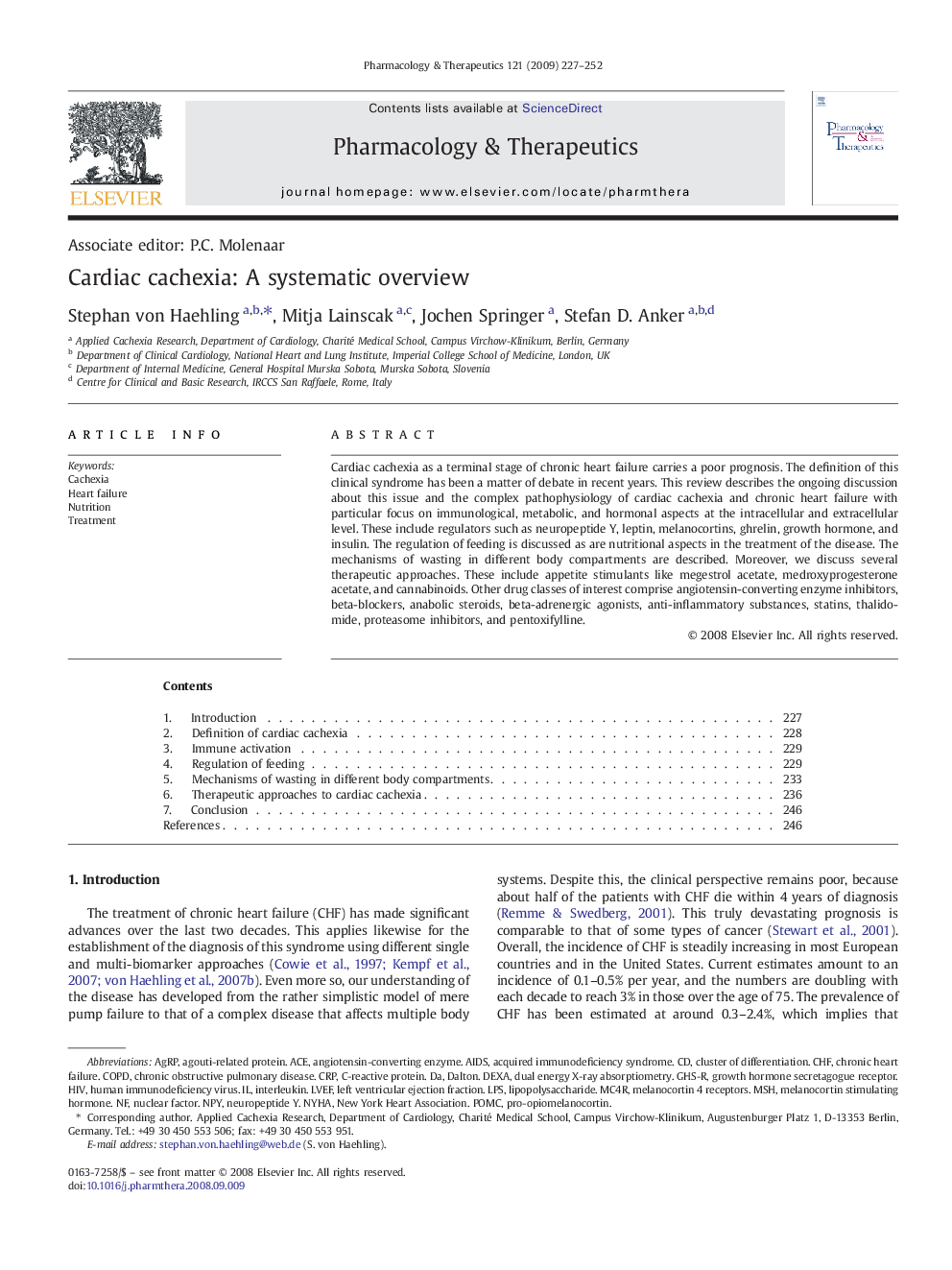| Article ID | Journal | Published Year | Pages | File Type |
|---|---|---|---|---|
| 2564181 | Pharmacology & Therapeutics | 2009 | 26 Pages |
Cardiac cachexia as a terminal stage of chronic heart failure carries a poor prognosis. The definition of this clinical syndrome has been a matter of debate in recent years. This review describes the ongoing discussion about this issue and the complex pathophysiology of cardiac cachexia and chronic heart failure with particular focus on immunological, metabolic, and hormonal aspects at the intracellular and extracellular level. These include regulators such as neuropeptide Y, leptin, melanocortins, ghrelin, growth hormone, and insulin. The regulation of feeding is discussed as are nutritional aspects in the treatment of the disease. The mechanisms of wasting in different body compartments are described. Moreover, we discuss several therapeutic approaches. These include appetite stimulants like megestrol acetate, medroxyprogesterone acetate, and cannabinoids. Other drug classes of interest comprise angiotensin-converting enzyme inhibitors, beta-blockers, anabolic steroids, beta-adrenergic agonists, anti-inflammatory substances, statins, thalidomide, proteasome inhibitors, and pentoxifylline.
